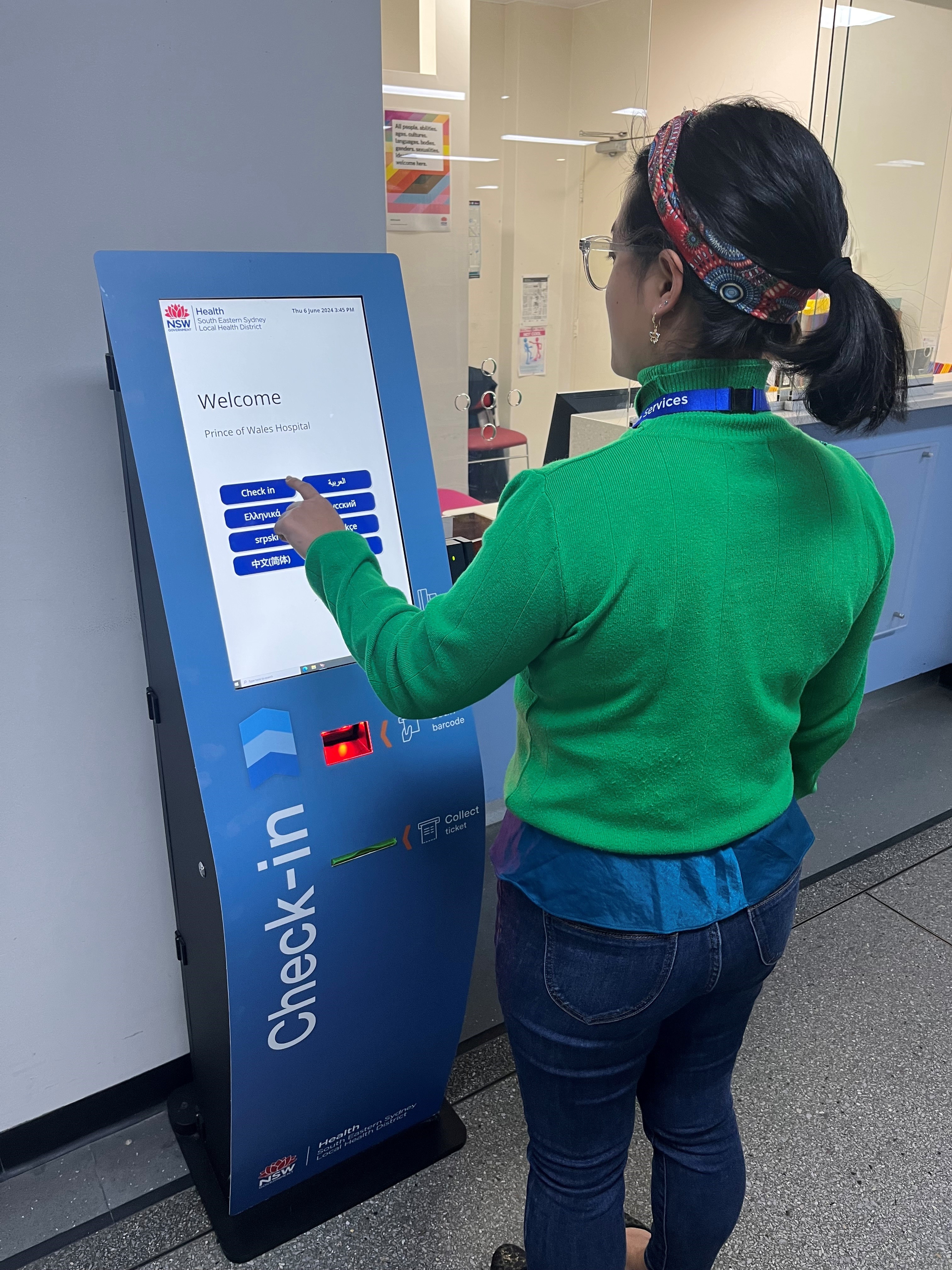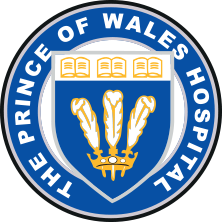Pain Management Department
How we can help you
We help you manage your pain and its impact on your life. We focus on the medical, physical, social, psychological and environmental factors associated with pain.
We can help you develop a plan to:
- reduce how much pain you are feeling
- increase what you can do
- regain control of your life, and
- improve the quality of your life.
We are a team of health professionals, based in the hospital, who will work with you to help you manage your pain.
Our doctors specialise in pain medicine, anaesthesia, geriatric medicine, addiction medicine, psychiatry and rehabilitation medicine. They will help you:
- Understand your pain and what may be causing it
- Reduce your pain using medicines and other treatments
- Maximise what you are able to do when you have pain
- Understand how your pain is affecting your physical and emotional health
- Use prescribed pain medicines safely
- Manage short term experiences of acute pain such as after having surgery.
Our nurses will assess your pain, give you education and pain treatments. Our nurses can help answer questions you have about treatments or medicines. Our nurses also will work with you in our pain programs, focusing on mindfulness and medicines.
Our physiotherapist will have time to explain what is happening when your body is in pain and how that can impact how you move and use your body. They can assess how you are moving and help you find more comfortable ways to move and use your body. They can help you get back to doing things that are important to you like exercise, work, or hobbies. They can work with you 1 to 1 either face to face in the hospital or via telehealth and within group pain management programs and exercise groups.
Our clinical psychologists will explore how you are coping with your pain and its impact on your life (mood, stress, sleep, family, work and leisure activities). They can help you manage unhelpful thoughts that cause distress and lead you away from what you want to be doing. They can help you learn effective strategies for managing pain, such as pacing activities, meditation and flare-up planning.
Hospital pharmacy can tell you about how to take your medicines safely and make sure your pain medicines work with your other medicines.
Our occupational therapist is available to help you to be as independent as you can in your daily functional activities. They may suggest some strategies or aids to help facilitate your independence.
Our social worker is available to help you with practical social and emotional issues that you may experience. They can also provide you with information and education around what other community services are available.
We provide the following services:
Acute pain management
While you are in hospital, our team will help you deal with any pain related to your medical condition, trauma or surgery. Our team visits the wards each day and we are on-call 24 hours a day.
We use a range of medicines to try to relieve pain. Some of them you receive through an infusion. Sometimes you can manage this medicine yourself through a special machine. Other medicines we use include tablets or injections which can help with pain.
Our outpatient clinic for persistent (chronic) pain
Some people experience long term ongoing pain. Our team can work with you to find out what might be causing your pain, how best to minimise it and how you can develop some strategies to cope better with this pain. Treatments include medicines and injections, electrical stimulation devices, exercise therapies, pain education, practicing meditation and relaxation techniques and reviewing your home, leisure and work environments. Some of these are offered to you individually. Others are offered on a group basis. They are generally undertaken in the outpatient setting but some treatments may require a brief stay in hospital.
Pain self-management programs with our Allied Health Team
Persistent pain is best treated by understanding what is happening in your body and nervous system, your psychology (thoughts, beliefs, emotions, habits, ways of coping) and social situation.
We use help you learn strategies such as pacing activity, mindfulness, exercise and healthy living to help treat your pain.
Our process includes:
1. Initial appointment with our doctor, physiotherapist and psychologist to assess your needs. Perhaps further medical treatment and follow-up with the pain doctors.
2. Information session with our physiotherapist, psychologist and pain nurse to help you:
- Make sense of your pain by learning the science of pain.
- Learn about medicines and other options to make good health decisions.
- Understand why your nervous system and natural reactions to pain might be preventing your recovery.
- Learn how active strategies like mindfulness and pacing activity can change the way your nervous system processes information to produce pain. This will allow you to do more with less pain.
- Respond to your pain in helpful ways rather than react in unhelpful ways.
3. Self-directed learning: books, apps, or referral by us to an online course.
4. Mini group workshops with our physiotherapist and psychologist to:
- Build your understanding of pain science.
- Set goals and increase your motivation to improve your mood and quality of life.
- Guide exercise to increase your flexibility, strength and fitness and your ability to move more easily despite pain.
- Pace and simplify activities to improve your day-to-day function without increasing pain.
- Practise mindfulness and desensitisation for managing your pain sensations, unhelpful thoughts and distressing emotions.
5. Further small group workshops - over 8 sessions of 3 hours with our physiotherapist, psychologist and pain nurse. Includes a program of activities between sessions.
- Establish a suitable exercise routine.
- Manage unhelpful thoughts, emotions and behaviours that may be maintaining your pain problem.
- Improve stress and sleep to have more energy and be more able to cope with pain.
- Develop assertive communication skills to get what you need while improving relationships.
- Learn a wide range of pain coping strategies including mindful meditation, desensitisation to manage setbacks and flare-ups so that you are not overwhelmed by pain
6. Individual sessions with a physiotherapist or psychologist if needed to consolidate your use of active self-management strategies. Not for massage or manual treatment. Not for treatment of anxiety, depression, PTSD or other mental illness.
7. Exercise Group – a low intensity group program for people who have completed one of our pain management programs. The number of sessions will be prescribed by our team. This is a stepping stone towards a community exercise program.
Cancer Pain Management
Our team will work with our hospital’s cancer and palliative care teams to help manage your pain from cancer. This may include medication review or adjustments, interventional pain procedures as well as exploring ways of improving pain coping strategies using psychological and exercise approaches.
Complex pain services
Our department is also a referral centre for patients requiring more complex pain assessment and management.
We provide advice and care for people living in regional and remote areas through our telehealth clinic. This means that we communicate with you through a video link on your computer screen. Once we have your referral, we will contact you and discuss how this works.
You will need a referral letter from your local general practitioner (GP) or specialty doctor to use this service. Your doctor will need to submit this referral electronically via Healthlink. Your referral will include your medical history, relevant test results, X-ray results and what medicines you are currently taking.
Once we receive this referral and accept it, we will send you a letter with your appointment details. We will also send this to your doctor. If we cannot make an appointment for you, we will send you a letter confirming that you are on the waiting list for the next available appointment. If you change your address and/or phone number, please call 02 9382 2863.
If you need to change or cancel your appointment or no longer require an appointment, please call 02 9382 2863.
We have many requests for letters to support National Disability Scheme (NDIS) or Disability Support Pension (DSP) applications.
We will write comprehensive letters to your referring doctor. These letters can be used for your NDIS or DSP applications.
We will not write letters to NDIS or Centrelink
Please bring:
- Your Medicare card or Veteran Affairs card
- A list of your medicines including any herbal or over the counter medicines
- Any recent x rays or medical images and their reports
- Insurer details if you are claiming workers compensation, public liability or third party insurance.
When you come to our hospital for your appointment, you can check-in using our electronic check-in kiosks. These are located in our Adult Outpatient Department, Acute Services Building (Botany Street), High Street and Barker Street entrances.

In your first appointment, you may see either a pain specialist alone or a team of specialists including the doctor, clinical psychologist and physiotherapist. If we need to do further assessments, we will arrange another time to do this. We will work with you to develop a pain management plan.
Make an appointment with your local family doctor to talk to them first. If your local doctor needs some advice they can contact us.
Websites on chronic pain
- Chronic Pain Australia www.chronicpainaustralia.org.au
- Pain Australia www.painaustralia.org.au
- Mind Spot www.mindspot.org.au
- This way up Online Treatment Program for Chronic Pain | THIS WAY UP
Brainman brief educational videos:
- Understanding pain in less than 5 minutes, and what to do about it!
- Understanding Pain: Brainman stops his opioids
- Understanding Pain: Brainman chooses
Books on pain
Rewire your pain: an evidence based approach to reduce chronic pain. Davies S, Cooke N, Sutton J.
Explain Pain. Butler, D. S., & Moseley, G. L.
Manage your pain: practical and positive ways of adapting to chronic pain. Nicholas M, Molloy A, Tonkin L, Beeston L.
The Pain Book, finding hope when it hurts. Siddall P, McCabe C, Murray R.
Research
We are dedicated to learning more about what causes pain and more effective ways people can deal with pain. We are also interested in monitoring some of the medicines people use for their pain. We do this in partnership with other research teams and health services.
We may ask you if you would like to be part of our research. You have the right to say no. If you do so, this will not impact on the services we provide to you.
Training and Education
Prince of Wales Hospital is a public teaching hospital. Our department is actively involved in teaching medical students, doctors, nursing and other health care staff about how to best manage pain. We are also accredited with the Faculty of Pain Medicine of the Australian and New Zealand College of Anaesthetists to provide specialist training for doctors to specialise in pain medicine. You may be asked to be involved in research or for a student to be present at your appointment. You have a right to say no. If you do so, this will no impact in any way on the services we will provide.
Please let us know if you need an interpreter. You can contact us telephoning the Translating and Interpreting Service (TIS) on 131 450. Tell the operator what language you speak and then ask the interpreter to set up a telephone conversation between you, an interpreter, and call us on 02 9382 2963.
